Jaish al-Adl: A common foe draws Taliban and Tehran together
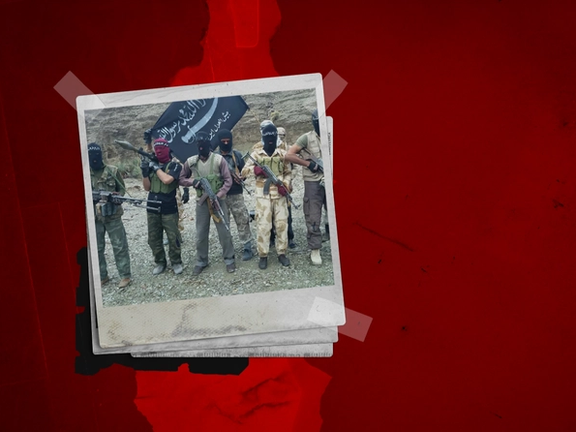


The first American lawmaker to meet Syria’s new president told the Eye for Iran podcast that Washington must give the new rulers of Damascus a chance if it hopes to banish Iran from the country.
Key to that mission, Congressman Cory Mills said, was enabling de facto president Ahmed al-Sharaa to scotch what remains of Iran's influence in Syria.
"What do we truly have to lose in this? You know, we know what we have to lose if they ... allow Iran to create a proxy state and what that means for the region and what that means for our allies," Mills said.
Syria’s new leadership is working to stamp out any Iranian activity on its soil, just months after a rebel advance led by al-Sharaa uprooted the Assad dynasty, Tehran's oldest Arab ally.
Damascus has been expelling proxy fighters, cutting off arms transfers to Hezbollah and pursuing new diplomatic partnerships across the region, including potential ties with Israel, Mills told Eye for Iran.
“He’s not allowing these proxy militias to continue to operate there as they did under the Assad regime,” Mills said.
Syria for Syrians
Mills argues this shift presents an opportunity for Washington to engage—both diplomatically and economically—before Russia, China or Iran move to fill the vacuum.
“If we actually open up the platform to allow for contract bidding, to rebuild infrastructure, that is a great first start,” he said, pointing to areas like water, electricity, and telecoms. “This is one of the most strategic geolocations in the entire region.”

Such engagement, he added, would not only counter authoritarian influence—it would create opportunities for American companies, reinforce regional stability, and help prevent Syria from sliding back into sectarian violence.
“The Iranian people could take a lot away from what has happened in Syria,” he said. “This could be them too. But it has to be an Iranian strategy, not an American strategy.”
Sanctions and Syria's new leadership
Until recently, Ahmed al-Sharaa was himself under US sanctions due to his leadership of Hay’at Tahrir al-Sham (HTS), an Al-Qaeda affiliated group designated as a foreign terrorist organization by the State Department.
On May 13, 2025, President Donald Trump while visiting Saudi Arabia last month made a shock announcement that he was lifting US sanctions on Syria.
Mills stressed that engagement with al-Sharaa must come with clear-eyed realism. “Trust but verify,” he said during the interview. “I think he knows what he has to do. He’s already taken actions that are not just words.”
Diplomatic overtures and regional stability
Mills revealed that al-Sharaa expressed interest in normalizing relations with Israel—albeit cautiously. While no formal talks have begun, the signal alone marks a dramatic shift from the Assad era, which was defined by hostility toward Israel and alignment with Iran and Hezbollah.
“He actually said that we would look at a good relationship and partner with Israel—not the 'Zionist state' ... but he knows the risk that he's taking,” Mills said.
The potential for Syrian-Israeli normalization would echo the Abraham Accords, a US-brokered framework that reshaped parts of the Middle East by bringing Israel into diplomatic relations with several Arab states.
Mills said any future agreements must respect Syria’s sovereignty. “What I don’t support is a balkanization of other sovereign territories,” he said. “I think that good fences make good neighbors.”
The trip to Damascus, however, was not without danger. Mills told Eye for Iran that Islamic State had allegedly plotted to assassinate him while he was in Syria. “They had already put together where they were going to utilize a car bomb,” he said. “They had already put together the location.”
Despite the risks, Mills argued that Syria’s political realignment offers the United States a rare chance to help shape a post-war roadmap—one that sidelines Iran, opens new diplomatic channels and bolsters long-term regional stability.
You can watch the full episode of Eye for Iran with Congressman Cory Mills on YouTube or listen on any major podcast platform like Spotify, Apple, Amazon Music or Castbox.
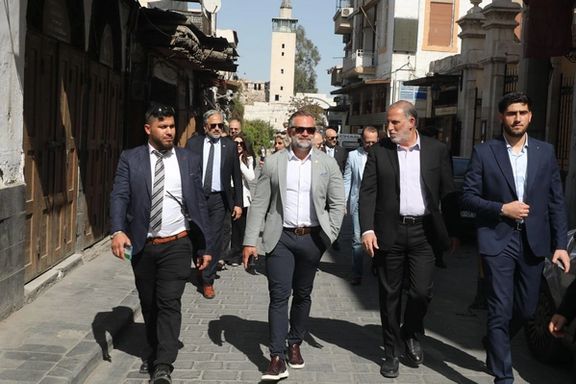
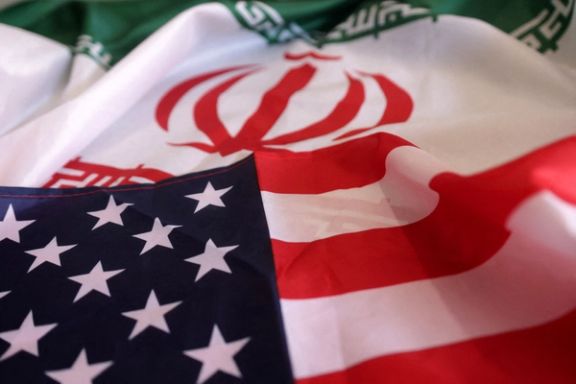
The United States on Friday sanctioned over 30 people and entities it said were tied to an Iranian shadow banking network used to launder billions of dollars for sanctioned institutions affiliated with the Islamic Republic.
The network—run by Iranian brothers Mansour, Nasser and Fazlolah Zarringhalam—relied on front companies in Hong Kong and the United Arab Emirates to evade sanctions and move funds through a parallel financial system, the US Treasury said.

“Iran’s shadow banking system is a critical lifeline for the government through which it accesses the proceeds from its oil sales, moves money, and funds its destabilizing activities,” Treasury Secretary Scott Bessent said in the statement.
According to the Treasury, the Zarringhalam brothers used Iran-based exchange houses—GCM Exchange, Berelian Exchange and Zarrin Ghalam Exchange—alongside dozens of front companies to facilitate transactions for entities such as the National Iranian Oil Company, the Quds Force, and Iran’s Ministry of Defense.
The operations involved fictitious invoices and payments routed through jurisdictions with limited financial oversight, the department said.
State Department spokesperson Tammy Bruce wrote on X that the network had “laundered billions of dollars for the Iranian government.”
“Under @POTUS’s maximum pressure campaign, we will starve Iran of the funds it uses to further its destabilizing activities.”
Friday’s sanctions were the first US measures targeting Iran’s shadow banking infrastructure since President Trump re-imposed “maximum pressure” on Tehran in February, the department said.
Last Sunday, The Wall Street Journal reported that the White House had temporarily paused new sanctions in parallel with ongoing nuclear negotiations, citing a directive from Press Secretary Karoline Leavitt.
Following Treasury’s announcement, Wall Street Journal reporter Elliot Kaufman wrote on X that the sanctions-pause policy had ended after the newspaper’s coverage. “We can now confirm what we heard Monday and Tuesday: The sanctions‑pause policy has been killed after it was exposed in our WSJ editorial,” he said.
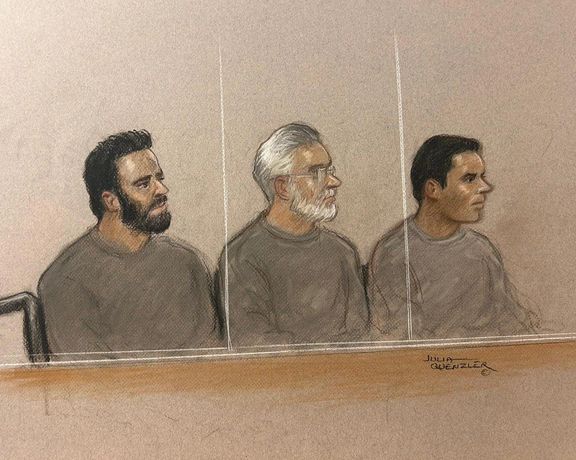
Three men accused of aiding Iran’s intelligence service are due to face trial in the UK in October 2026, it was announced in a preliminary hearing at London's Old Bailey on Friday.
Defense barristers for defendants Mostafa Sepahvand, 39, Farhad Javadi Manesh, 44, and Shapoor Qalehali Khani Noori, 55, indicated that they were likely to plead not guilty.
A formal plea hearing was set for September 26 and the trial for October 5, 2026 at the Woolwich Crown Court.
The men were arrested on May 3 and remain in custody. They are the first individuals from Iran to be charged under the UK’s National Security Act of 2023, which covers threats from hostile foreign states.
All three are accused of engaging in conduct likely to assist a foreign intelligence service, identified by police and the Home Secretary as Iran. The charges relate to alleged activities between August 2024 and February 2025.
Sepahvand is charged with carrying out “surveillance, reconnaissance and open-source research” with the intention of committing “serious violence” against a person in the United Kingdom. Javadi Manesh and Nouri are charged with “surveillance and reconnaissance” with the intention “that acts, namely serious violence against a person in the United Kingdom, would be committed by others”.
Alleged surveillance of individuals in the UK
The men are also charged with conducting surveillance and reconnaissance of individuals in the UK.
Their targets are allegedly journalists from Iran International, an independent Persian-language broadcaster and multilingual news outlet based in London.
Iran International has a broad following in Iran, despite government efforts to restrict internet and satellite signal access.
Government reaction
Following the announcement of the charges in May, Home Secretary Yvette Cooper said: “Iran must be held to account for its actions ... We will not tolerate growing state threats on our soil.”
The government would examine further steps to counter state-based threats to national security, she added.
All three men were granted Temporary Leave to Remain in the UK after entering illegally.
Sepahvand entered the country in 2016 in a lorry and claimed asylum.
Javadi Manesh arrived by small boat in 2019 and applied for asylum on religious grounds.
Noori's asylum application was rejected in 2024 and is currently under appeal.
Noori had previously sought asylum in Germany under a false identity, according to a report published by IranWire. The article said he entered Germany in 2019 using a fake Brazilian passport and claimed to be a political dissident.
His asylum case was rejected, including appeals, and he left the country in late 2022 before a final court ruling was issued.
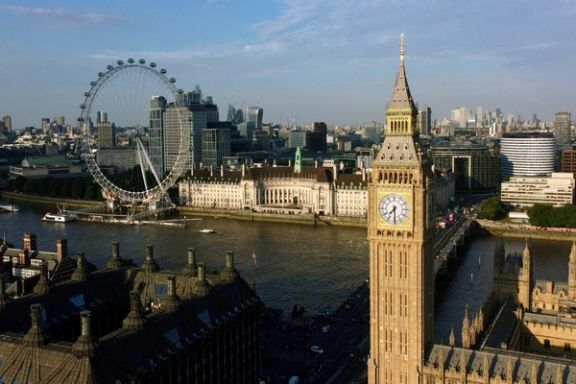
Iran and Russia are posing an “extraordinary” threat to the United Kingdom through plots involving espionage, sabotage, and intimidation, Britain’s independent adviser on state threats and terrorism told The New York Times in an interview published Friday.
“These hostile states are using organized crime groups to carry out violent and disruptive operations,” Jonathan Hall said, warning that such threats are much harder to conceptualize for the public compared to terrorism, but no less dangerous. “If you’re an intelligence officer, why would you not exploit divisions in the West?” he added.
Hall warned that while some operatives are “bunglers,” others have come alarmingly close to their targets.
His comments come amid a series of prosecutions involving state-linked threats.
In one trial, six Bulgarians were convicted of spying on behalf of Russian intelligence. In two separate operations on May 3, eight men, including seven Iranians, were arrested by the British counter-terrorism police. Three were later charged under the National Security Act for conduct 'likely to assist a foreign intelligence service.' The foreign state involved is Iran, police said.
Iran poses ‘unacceptable threat,’ UK minister says
Last month, UK Home Secretary Yvette Cooper declared in parliament that “the Iranian regime poses an unacceptable threat to our domestic security, which cannot continue.”
“We will not tolerate growing state-backed threats on UK soil,” Cooper said. “The UK will not accept any Iranian state threat activity in the UK.”
Push to target Iran’s IRGC gains momentum
In response to the rising threats, Hall last month urged the government to expand its powers to target affiliates of Iran’s Islamic Revolutionary Guard Corps (IRGC), which he said poses a unique challenge. The Revolutionary Guards cannot be blacklisted the same way non-state actors are, Hall argued, but recommended a new mechanism — a Statutory Alert and Liability Threat (SALT) notice — to disrupt its networks and apply international stigma.
“It will allow the government to communicate decisive stigma... and put the IRGC on notice that its operations, minions, and influence networks are at greater risk of executive action,” his report said.
Over 550 UK lawmakers and peers signed a letter in early May calling for the full proscription of the IRGC as a terrorist group, intensifying political pressure on Prime Minister Keir Starmer’s government to act.
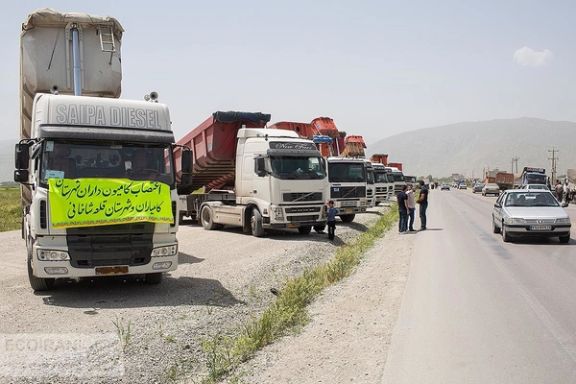
Iranian authorities have arrested more than 40 people, including truck drivers and supporters of a growing nationwide truckers’ strike, according to the Human Rights Activists News Agency (HRANA).
The detentions span several provinces, including Kurdistan, Gilan, Fars, Qazvin, and Kermanshah, and involve both striking drivers and citizens accused of promoting the protests online or documenting blockades.
The strike began on May 22 in the southern port city of Bandar Abbas, triggered by mounting frustrations over rising costs, falling freight rates, fuel restrictions, and lack of state support. The movement quickly spread, and the Alliance of Iran Truckers and Truck Drivers’ Unions (AITTD) now says drivers in at least 155 cities and towns are participating.
Those arrested include named individuals such as Farzad Rezaei, Zanko Rostami, Rezgar Moradi, Sediq Mohammadi, Ata Aziri, Alireza Faghfoori, and Shahab Darabi—who has reportedly been released. Authorities in Qazvin said nine people were detained for allegedly disrupting traffic and posting videos on social media. In some cases, state media aired what appeared to be forced confessions.
The Center for Human Rights in Iran (CHRI) has called the strike “the largest labor protest in recent years,” citing it as evidence of growing discontent over the country’s deepening economic crisis.